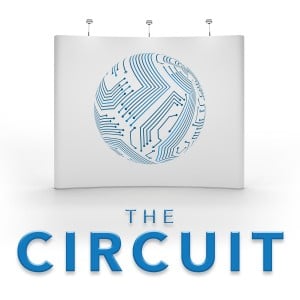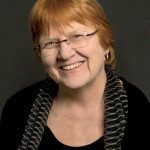 Ed. note: This is the second piece by Above the Law’s newest legal technology columnist, Monica Bay. In case you missed it, you can read her inaugural post here.
Ed. note: This is the second piece by Above the Law’s newest legal technology columnist, Monica Bay. In case you missed it, you can read her inaugural post here.
It’s mid-February and at least half of the United States is very, very cold. But warmth is near—and so is baseball! Catchers and pitchers are already in Florida and Arizona, and soon spring training will start. So why not defrost via a doubleheader: catch up on the latest e-discovery tools and strategies (and garner continuing legal education credits), and cheer for your favorite baseball team!
The Grapefruit League

Decrypting Crypto, Digital Assets, And Web3
"Decrypting Crypto" is a go-to guide for understanding the technology and tools underlying Web3 and issues raised in the context of specific legal practice areas.
Teams: Heading to Florida are the Atlanta Braves, Baltimore Orioles, Boston Red Sox, Detroit Tigers, Houston Astros, Florida Marlins, Minnesota Twins, New York Mets, New York Yankees, Philadelphia Phillies, Pittsburgh Pirates, St. Louis Cardinals, Tampa Bay Rays, Toronto Blue Jays, and Washington Nationals.
The 2016 Grapefruit season opens on Sunday, February 28, with the University of Tampa playing the Philadelphia Phillies at Clearwater. Several schools play against Major Legal Baseball teams on February 29 and March 1. (Especially fun: Boston College v. Boston Red Sox.) The last Grapefruit games are April 2.
Some fans like to go to the last week of Spring Training games, so the timing is perfect for you to attend the fourth annual University of Florida/EDRM E-Discovery Conference. It will be held March 30, at the Gainesville campus—so you can catch the last few games, or get your baseball fix before you head upstate to brush up on your e-discovery skills.
William Hamilton is the ringleader for the conference, and executive director of the UF Law E-Discovery Project. He’s also an instructor at the school’s Levin College of Law, as well as vice chancellor of Bryan University. He is retired from his post as national e-discovery partner at Quarles & Brady. George Socha, president at Socha Consulting, is the founder of EDRM.

Paying for Law School in 2025: A Straight-Talk Playbook
Juno has consistently secured the best private loan deals for students at the Top MBA programs since 2018—now they’re bringing that same offer to law students, at no cost. Students can check their personalized offers at juno.us/atl This article is for general information only and is not personal financial advice.
“This year’s conference focuses on ‘Curing Your Data Demons with Simple and Handy Analytical Tools,” explained Hamilton. Trial lawyer/computer forensic examiner Craig Ball will kick off the day, addressing “nine basic e-discovery skills every attorney must have,” said Hamilton, noting that the event will also include technology demonstrations and a judicial panel. Ralph Artigliere, a retired Florida circuit judge, will present the luncheon address, discussing e-discovery and professional ethics. Other panels include “Get the Data That Cures Your Headache” and “A Quick Look into Your Case Psyche” (which includes UF alumni David Horrigan, e-discovery counsel and legal content director at kCura) and “Who Says TAR is Only for Litigation Giants.”
Hamilton says he started teaching e-discovery because he wanted graduates to have the tools they need to litigate. He was especially concerned about students who are hitting the streets right after law school and may not be headed to a progressive large firm. “They are going to get killed. So we started teaching e-discovery at UF as a survival course with legal, analytic and practical components.” E-discovery today, he says, “is in a process comparable to the movement from DOS to Windows. The secret sause now is graphics and visualiation. Key your eye on startups that know this, and that the market is in the middle.”
The conference is free to students, academics, governmental officials, courts and staff. Others can attend for $99 on campus or $45 online. CLE credits will be available. Registration info here.
The Cactus League
Teams: On route to the Phoenix, Arizona region venues: Arizona Diamondbacks, Chicago Cubs, Chicago White Socks, Cincinnati Reds, Cleveland Indians, Colorado Rockies, Kansas City Royals, Los Angeles Angels, Los Angeles Dodgers, Milwaukee Brewers, Oakland A’s, San Diego Padres, San Francisco Giants, Seattle Mariners, and Texas Rangers.
The University of Arizona kicks off Spring Training with a game against the hometown Diamondbacks on March 1; the last games are Saturday, April 2. Conveniently, the fifth annual ASU-Arkfeld E-Discovery and Digital Evidence Conference (#asuarkfeld_ediscovery) will be held March 9 to 11, at the campus in Tempe, perfect timing if you want to spend a week in the Phoenix metropolis.
Judge Shira Scheindlin of the U.S. District Court for the Southern District of New York is always a big draw. She will present the keynote address, “The New Rules in Action,” along with Kevin Brady (of counsel, Redgrave) and Lea Bays (of counsel, Robbins Geller Rudman & Dowd) , at 1 p.m. on March 9. Judge Scheindlin will also speak (with Meredith Dugan, discovery paralegal, Southwest Airlines Co.) on ESI requests and production in response to civil subpoenas, on March 10 at 3:35 p.m.
Other panels will address hacking, legal holds, moderating compliance, project management, negotiating meet and confer sessions regarding tech and legal issues, information goverance, the internet of things, government investigations, data analytics, small case e-discovery, “TAR wars,” the new rules amendments, and more.
Michael Arkfeld, the director of the conference, is the principal of Arkfeld and Associates. He is an attorney, author and educator. Arkfeld has long advocated the need for lawyers of all stages in their career to embrace e-discovery and technology.
“In order to properly represent your client, law students and current practitioners must become fluent in e-discovery,” he said. “Most of all evidence and information today is created in a digital format in terms of email, etc. It is clearly important to discover electronically stored information from the opposing side as well as understand your duty to preserve ESI,” Arkfeld said. “Attorneys are constantly challenged in their practice area to simulate new legal principles and other issues that affect their practice. This is the same. Once you understand digital information, email, servers, etc., you do not have to relearn this each time. But it is imperative that lawyers step up and accept this challenge, or otherwise face all kinds of consequences.”
“I think the biggest challenge in litigation for 2016, and many prior years or maybe decades, is the lack of access to our justice system because of cost, complexity and, unfortunately, the billable hour,” said Arkfeld. “More than 80 percent of American citizens today have no access into the justice system. That needs to change.”
Attendees can earn up to 15 CLE credits and three ethics credits. Early bird fees until February 19 are $595 ($695 after) for regular registration, $295 ($346 after) for government/non-profit/paralegals, and $75 ($95 after) for students. Registration page here.
So pick your venue and dive into the sun!
Earlier: The Circuit: Legaltech New York 2016
 Monica Bay is a Fellow at CodeX: The Stanford Center for Legal Informatics and a columnist for Above The Law. She also writes for Bloomberg BNA Big Law Business and serves as a special consultant to The Cowen Group. She is a member of the California Bar and is based in New York City (and can be frequently found at Yankee Stadium). Email: [email protected]. Twitter: @MonicaBay.
Monica Bay is a Fellow at CodeX: The Stanford Center for Legal Informatics and a columnist for Above The Law. She also writes for Bloomberg BNA Big Law Business and serves as a special consultant to The Cowen Group. She is a member of the California Bar and is based in New York City (and can be frequently found at Yankee Stadium). Email: [email protected]. Twitter: @MonicaBay.